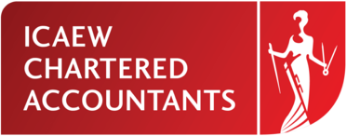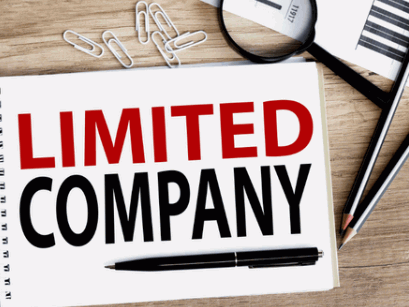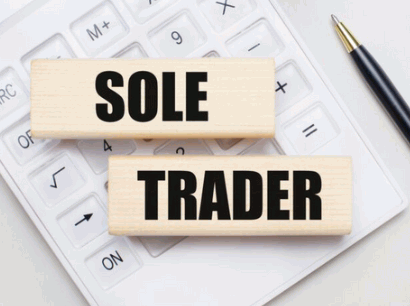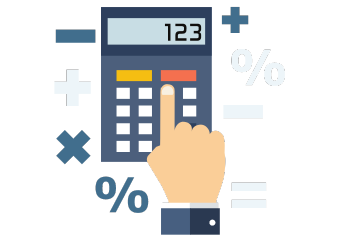



Starting a new business can be daunting but it can also be a rewarding and profitable venture. One of the first decisions you will need to make is the type of business you are going to run. The majority of businesses in the UK are sole traders and this type of structure has specific advantages and disadvantages. Before jumping in on your business journey, let's take a look at exactly what these are.
If you are ready to start your business, it can be worth getting some expert advice about which route would be best for you. At Prescient Accounting, our team can offer tailored professional advice to help new businesses get off on the right foot. We can also stay with you throughout your business journey with our accounting services, including tax support.

In the UK, there are three main types of business organisations:
There are other types of business structures but these are far less commonly seen.
A sole trader is a business owned by one person. They can take on employees but the business itself is owned by a single individual.
Sole traders are usually small businesses and this is the simplest and most common type of business structure seen in the UK.
There is no legal distinction between the business itself and the owner of a sole trader business. In other words, the business and the owner are legally one and the same.
This means that there is no legal distinction between the owner's assets and the business assets.
The owner of a sole trader business keeps all the profits and also is responsible for all of the business debts. They will need to pay income tax via the HMRC's Self-Assessment tax return.

A limited company is an organisation set up by its owners to run a business. This registration is completed via the Companies House website. A Company Tax return will need to be prepared and submitted as part of the annual accounts and this is a more complicated process than a Self-Assessment tax return.
Legally, a limited company is a person. It is a separate legal entity from the people who own it. It will have the same legal rights and responsibilities as an individual and these are independent of the legal rights and responsibilities of the company's owners.
Any profits after Corporation Tax is paid will belong to the company. They can then be shared amongst the business owners.
A limited company will have:
Limited companies can either be private limited companies or public limited companies (PLC). Public limited companies sell their shares on the stock market and they can be bought by anybody. To buy shares from a private limited company, you will need permission from the owners.
Uncover more: Private Limited Company Advantages And Disadvantages

A business partnership is when more than one person owns a business together. This can either be a general partnership or a limited partnership.
You can think of a general partnership as being similar to a sole trader. In this type of organisation, all owners are personally responsible for the business assets and debts. Their personal assets may be at risk if the company gets into financial difficulties.
A limited partnership is like a limited company. The owners are not personally liable for the business debts. The profits are shared between the partners and each is responsible for their own income tax liability.

There are a wide range of advantages to starting a sole trader business. If you have ever dreamed of being your own boss, this is often the most accessible way to achieve that.
A sole trader business owner will keep all the profit that the business makes. You will need to pay Income Tax on those profits but what's left is entirely yours.
In a limited company or business partnership, the profits will need to be shared with the other owner(s) and/or the shareholders/members.
Sole trader simplicity is one of the greatest advantages of this type of business structure. Almost every aspect of running the business is less complicated than with other types of businesses, such as a limited company.
There are fewer rules and regulations, the start-up process is quick and easy, and there are fewer administrative requirements.
Because the owner and the business are one and the same person, even a separate business bank account isn't needed. All money for the business can be run through your personal bank account (although some people prefer to have a separate business account all the same).
Accounting for sole trader businesses is much simpler than for a limited company. You will just need to fill in a tax return via the Self Assessment system. You don't need to submit annual accounts via Companies House.
You can also offset business expenses against trading income. When you are just starting out, losses can be used to reduce the tax due in your first trading year or as relief against profit from the past.
A limited company will need to file annual accounts with Companies House. By law, these accounts are part of the public record and can be accessed by anyone on the Companies House website.
For sole trader businesses, however, there are no publically accessible accounts. Your Self-assessment tax return is private and does not usually have to be shared with anyone except HMRC. This means that you can operate with a greater level of privacy.
As the sole owner of the business, you will have complete control over how it is run. You won't need the approval of members or directors to make key business decisions, so you can take it in whichever direction you see fit.
In terms of flexibility, sole traders are often better able to adapt to changes and help their businesses thrive in fast-paced environments. Whatever happens, you will retain personal ownership and full control over how your business is run.
There are no corporate tax overheads with a sole trader business and there are fewer administrative and compliance costs. This can make your business much cheaper and more efficient to run and it gives you a greater profit margin.
You may also be able to access streamlined processes for obtaining permits and licences, which can help to lower costs and increase the speed at which you can work.
Take a look: How To Avoid Capital Gains Tax On Inherited Property UK

While there are several advantages to being a sole trader, there are also a variety of disadvantages associated with this type of business structure.
Because the owner and the sole trader business are the same entity, there is a complete personal responsibility for any debts that the business collects.
Because you are personally liable, your own assets (e.g. your house or car) can be used to pay off the business debts if necessary.
This can be less of an issue for some sole traders than others. If you are a freelancer working from your laptop in a coffee shop, then your business won't acquire any sizable debts. If, however, you are funding an office with equipment and staff, then the debts can quickly mount up.
In terms of financing the start-up costs of the business, this can be more difficult for a sole trader. Banks and other financial organisations may be less likely to give a self-employed person alone a business loan. Lenders often prefer to see a more structured and accountable business structure. A sole trader company has reduced financial transparency compared to a limited company because they don't file public accounts.
Investors are also likely to not be interested in funding a sole trader because you won't be able to offer them any shares in the company in return for their investment.
Without being able to access large business loans or investments, a sole trader may need to access personal loans, dip into savings, or ask family and friends for help with financing the venture. They may also have lower overall capital to get their business going.
If you want to scale up your business to make it more profitable, this can be more difficult for a sole trader.
All business profits are your personal profits and are taxed as Income Tax. This means that as your business grows, so does your tax burden.
You will pay:
You will also need to pay National Insurance Contributions (Class 2 and ). And if your business turns over more than £85,000 a year, you will need to register for VAT.
With a limited company, you can limit the money you take out of the business. So you could choose to leave some of the profits in the company in one tax year and pay them to yourself the following tax year. This can't be done with a sole trader company.
As the sole owner is also legally the same entity as the company, the business is 100% reliant on the owner's health, well-being, and ability to work. Any illness, family emergency, or other event can stop the running of the business in its tracks.
If you ever decide to sell the company and move on, its sole trader status can also make the process much more complicated.
Because the owner is essentially the business, it can't be sold as is. Instead, you would need to organise a transfer of assets.
Changing to a limited company instead of a sole trader business would also involve the transfer of assets and can be a complicated process.
Limited companies can protect their business name, which prevents other businesses from using your brand or name without permission and from operating as if they were your business.
Sole traders are not able to protect their business name so have no recourse to prevent other companies from using an identical name and branding.

Not sure whether a sole trader business is right for you? Book a sit down with one of our expert advisors. They will work with you to understand your business plans and future development ideas and can advise on the best business structure to suit your needs.
And we will also be there for you throughout your business journey. Our team will help with everything from preparing your accounts to submitting your tax records, VAT advice to payroll help, as well as ensuring that your business is as tax efficient as it should be.
A sole trader business is the most common structure seen in the UK. A sole trader means that the owner and the business are legally the same person. This can bring with it a range of advantages and disadvantages.
A sole trader business can be the best option in some situations but in others, a limited company or other business structure can make more sense. Getting expert advice can help you to decide which one would work best for your business plans.

We believe that the role of the accountant is much more than dealing with pure compliance. That’s why we’re offering a free video or telephone call with one of our team of chartered accountants, to give you straightforward and open dialogue about your tax and accounting affairs.